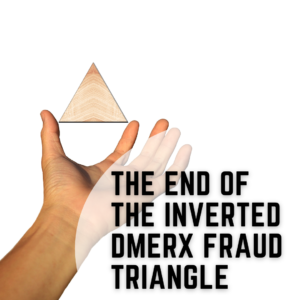 As a healthcare ethics speaker, healthcare ethics consultant and book author, I grow weary of people viewing fraud as an impenetrable jungle, where bad ethics are impossible to trace. In fact, with hard work and the proper tools, fraud can be traced…and guess what, even massive amounts of fraud usually come down to a few unethical players.
As a healthcare ethics speaker, healthcare ethics consultant and book author, I grow weary of people viewing fraud as an impenetrable jungle, where bad ethics are impossible to trace. In fact, with hard work and the proper tools, fraud can be traced…and guess what, even massive amounts of fraud usually come down to a few unethical players.
DMERx
The dollar amount of fraud may vary, of course, but the elements of that fraud always come down to three influences: a lack of oversight or supervision; a need and rationalization. In even a massive fraud that resulted in close to $2 billion, the same elements are in place.
According to healthcare business writer, Ananya Bhattacharya (June 29, 2023):
“Executives at DMERx—an online platform that created and sold templates of doctors’ orders—were accused of using mass telemarketing operations to sell the elderly and disabled expensive and unnecessary medical equipment and prescriptions.”
The incredible amount of fraud ultimately hinged on three fraudsters: DMERx
CEO Brett Blackman; CEO Gary Cox, and business development expert Gregory Schreck convinced elderly and impaired “patients” through a telemarketing scam that they needed “orthotic braces, prescription skin creams, and other items that were medically unnecessary and ineligible for Medicare reimbursement.”
The big-time executives didn’t do it alone. They solicited dozens of telemarketers. In fact, the Department of Justice has charged close to 80 people. Together they were able to go after vulnerabilities and loopholes in many care programs outside of Medicare.
As a healthcare ethics speaker, healthcare ethics consultant and book author, I am not-at-all surprised they were able to exploit the programs with fake prescriptions. Nor am I surprised at the basic greed involved in the corruption and use of the siphoned funds. Most of the funds were used to buy “trinkets,” i.e., properties, luxury cars, and laundered cash.
Sophistication and unethical filth
As the DoJ uncovered the DMERx fraudsters, the level of sophistication of generated cash gives way to the realization that what they did destroy, ended, or bankrupted many lives.
Of the monies eventually stolen from the government and actual patients, the scam itself allowed $370 million in unnecessary prescription drugs; $150 in fake opioid billings and faked laboratory tests, as well as medical equipment. Neither the durable products, drugs nor the lab tests were necessary. It is worth mentioning that up to 24 physicians, PA’s and RN’s took money and put hundreds of patients at-risk. Allegedly one physician alone signed-off on 2,800 unnecessary orthotic braces.
Pigs at the trough
So far, more than $10 million has been retrieved in cars, boats, homes, and bank accounts. It is a pittance of what has been lost.
None of this scam would have been possible without the generation of fake “scrips” generated by a fraudulent company and signed off by unethical healthcare providers. Some of the lower-level fraudsters have already gotten substantial jail sentences. It is not possible to ascertain how many lives they have ruined or destroyed.
The executives at DMERx must now rationalize their lack of ethics along with at least two-dozen medical professionals. If we and our healthcare providers, as legitimate patients and healers, ever wonder in part, why costs are so astronomically higher than they should be, tracing the inverted triangle of this fraud back to its origins, reveals it to be a relative handful of crooked business people and greedy physicians.
The breakdown is an ethical wasteland from medical and nursing schools to business fraud to lowered government expectations and a lack of examination and examiners. As a healthcare ethics speaker, healthcare ethics consultant and book author, I shudder to think how much money has been lost in this wasteland without so much as a shred of recovery.
Is there good news?
This scandal needn’t be viewed in purely negative terms but in a distinct call to action. If the DoJ can trace the executives of DMERx back to a handful of executives, can they not identify several organizations occupying a similar area? What about imposing mandatory ethics training on all of them as a pre-requisite to doing any kind of government transactions? Then, why not an in-depth study and better developed curriculum on medical and nursing school students? Apparently, the current level of instruction is failing. Why is it happening and what are the systemic flaws?
This is a people – not an organizational problem. Perhaps people need to solve it and not “institutions.”
LEAVE YOUR COMMENTS!



Did any of them actually get convicted ?